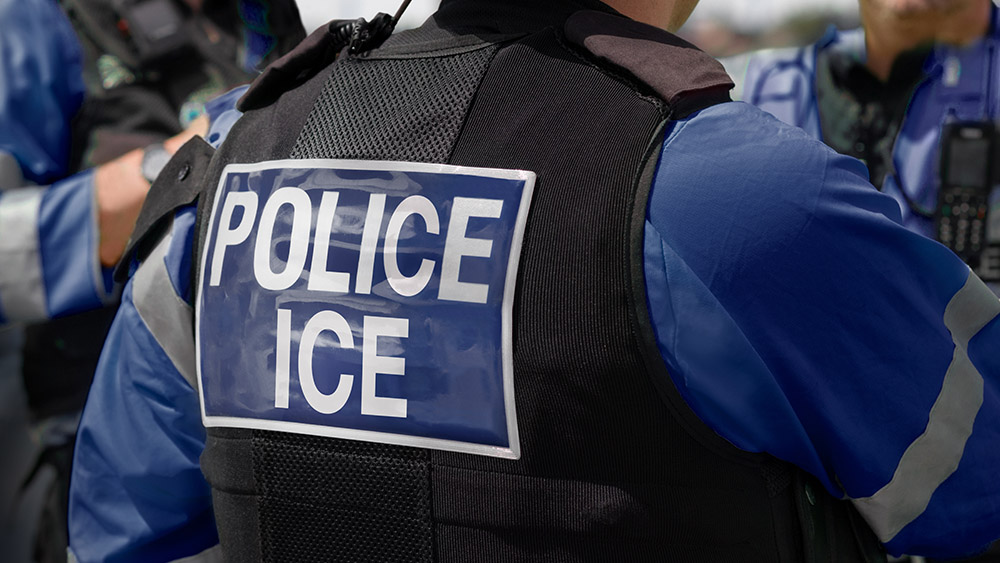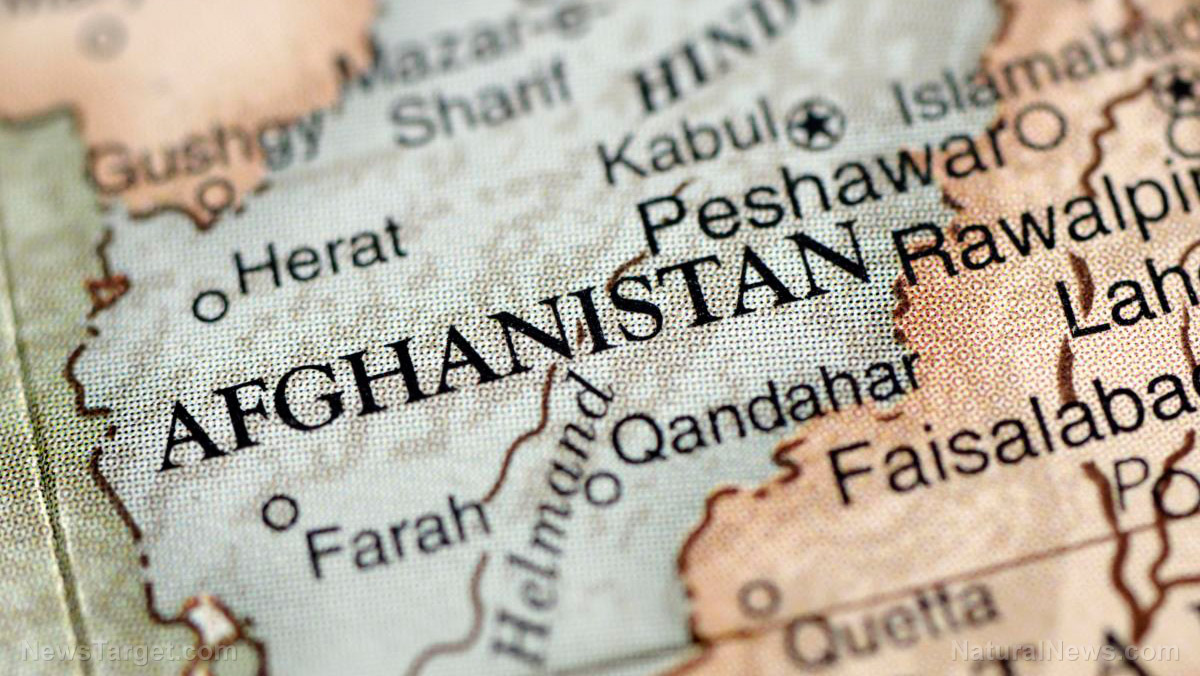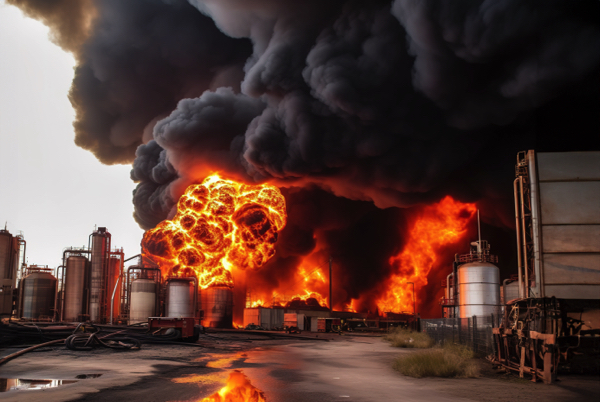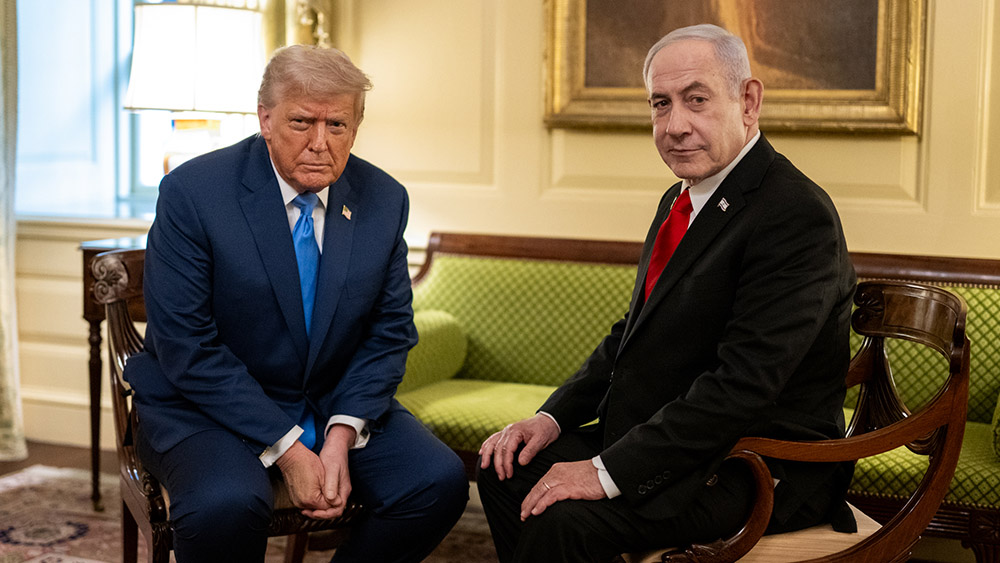 Parler
Parler Gab
Gab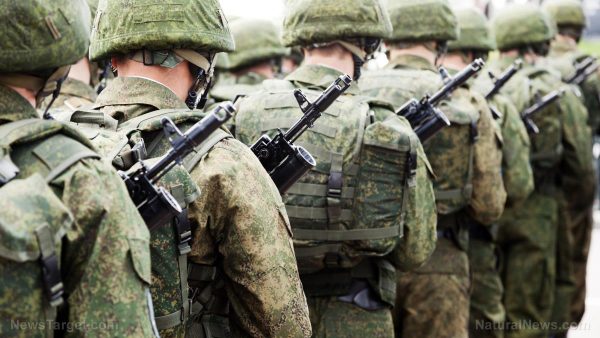
- Texas National Guard troops arrive in Chicago following Trump’s order to combat violent unrest and enforce immigration laws.
- Illinois officials file lawsuit against federal intervention, accusing Trump of overreach and violating state sovereignty.
- Chicago Mayor Brandon Johnson signs executive order banning ICE from city-owned properties, escalating tensions.
- Protests turn violent as anti-ICE demonstrators clash with federal agents, prompting tear gas and arrests.
- Legal battles intensify as federal judges block similar deployments in Portland, raising constitutional questions.
Federal intervention sparks legal and political firestorm
The Trump administration’s decision to deploy Texas National Guard units to Chicago has ignited fierce resistance from Illinois Democrats, who filed an emergency lawsuit to block the move. U.S. District Judge April Perry declined to issue an immediate injunction, allowing troops to mobilize while the case proceeds. Governor Pritzker accused Trump of fabricating a crisis to justify military intervention, stating, “There is no insurrection here.” Yet federal officials counter that Chicago’s refusal to cooperate with ICE has allowed criminal elements to flourish. White House deputy chief of staff Stephen Miller labeled attacks on ICE officers as “domestic terrorism,” citing incidents where protesters rammed vehicles into federal agents’ cars. Chicago Police Superintendent Larry Snelling acknowledged the volatile situation, urging demonstrators not to provoke confrontations. “Do not box in any law enforcement officer,” he warned, referencing incidents where federal agents used tear gas after being surrounded by hostile crowds.Sanctuary city vs. federal authority
At the heart of the conflict lies Chicago’s “Trust Act,” which prohibits local law enforcement from assisting ICE in immigration enforcement. Mayor Johnson has doubled down on the policy, framing federal raids as an assault on immigrant communities. “We cannot allow them to rampage throughout our city with no checks or balances,” he declared. But Homeland Security officials argue that sanctuary policies shield dangerous criminals. Recent ICE raids in Chicago apartments have led to violent encounters, including the fatal shooting of a Mexican immigrant in Franklin Park—an incident that further inflamed tensions. The administration’s broader strategy mirrors its controversial actions in Portland and Los Angeles, where federal forces clashed with protesters amid mass deportations. Critics warn that Trump’s crackdown could lead to the removal of millions, reshaping urban demographics and crushing progressive immigration policies.Legal precedents and constitutional clashes
The Chicago deployment is just one front in a nationwide legal battle over federal power. In Oregon, a Trump-appointed judge blocked National Guard mobilization, calling it an overreach. Yet the administration insists that protecting federal personnel justifies the use of troops—a stance that clashes with past Republican objections to federalized Guard units under Democratic presidents. The debate echoes historic tensions between state and federal authority, from the Civil Rights era to post-9/11 security measures. Legal scholars warn that unchecked executive actions could erode constitutional safeguards, while supporters argue that failing to enforce immigration laws invites chaos.A nation at the crossroads
As federal forces dig in for a prolonged operation, Chicago has become a microcosm of America’s deepening divisions. The city’s crime rates, though declining overall, remain a flashpoint in the national debate over policing and immigration. Trump’s vow to “liberate” cities from “lawless invaders” resonates with his base but fuels fears of authoritarianism among opponents. The outcome of this standoff will hinge on courts, public opinion and the resilience of local resistance. Will federal authority prevail, or will sanctuary cities succeed in defying Trump’s vision of mass deportations? As troops patrol Chicago’s streets, the answer may determine not just the fate of one city, but the future of American governance itself.A test of America’s soul
The deployment of Texas National Guard troops to Chicago marks a pivotal moment in the Trump administration’s hardline immigration agenda. With legal challenges mounting and protests raging, the conflict exposes fundamental questions about federalism, civil liberties and the rule of law. Whether this operation restores order or deepens unrest, one truth is clear: The battle for America’s soul is being fought block by block in the streets of its largest cities. Sources for this article include: TheNationalPulse.com TheGuardian.com MilitaryTimes.comSweden revives Cold War food stockpiling amid rising conflict fears
By Cassie B. // Share
DHS issues stern warning against parties doxxing and threatening ICE agents
By Ramon Tomey // Share
Deadly border clashes escalate tensions between Pakistan and Taliban-led Afghanistan
By Zoey Sky // Share
COVID-19 vaccine mandates abandoned after worker uprisings and 27% higher cancer risk findings
By Patrick Lewis // Share
Governments continue to obscure COVID-19 vaccine data amid rising concerns over excess deaths
By patricklewis // Share
Tech giant Microsoft backs EXTINCTION with its support of carbon capture programs
By ramontomeydw // Share
Germany to resume arms exports to Israel despite repeated ceasefire violations
By isabelle // Share

